9 Most Sustainable Bamboo Clothing Brands: The Conscious Consumer’s Guide
Affiliate Disclosure
Hey fellow impactful ninja ?
You may have noticed that Impactful Ninja is all about providing helpful information to make a positive impact on the world and society. And that we love to link back to where we found all the information for each of our posts.
Most of these links are informational-based for you to check out their primary sources with one click.
But some of these links are so-called "affiliate links" to products that we recommend.
Why do we add these product links?
First and foremost, because we believe that they add value to you. For example, when we wrote a post about the environmental impact of long showers, we came across an EPA recommendation to use WaterSense showerheads. So we linked to where you can find them. Or, for many of our posts, we also link to our favorite books on that topic so that you can get a much more holistic overview than one single blog post could provide.
And when there is an affiliate program for these products, we sign up for it. For example, as Amazon Associates, we earn from qualifying purchases.
What do these affiliate links mean for you?
First, and most importantly, we still only recommend products that we believe add value for you.
When you buy something through one of our affiliate links, we may earn a small commission - but at no additional costs to you.
And when you buy something through a link that is not an affiliate link, we won’t receive any commission but we’ll still be happy to have helped you.
What do these affiliate links mean for us?
When we find products that we believe add value to you and the seller has an affiliate program, we sign up for it.
When you buy something through one of our affiliate links, we may earn a small commission (at no extra costs to you).
And at this point in time, all money is reinvested in sharing the most helpful content with you. This includes all operating costs for running this site and the content creation itself.
What does this mean for me personally?
You may have noticed by the way Impactful Ninja is operated that money is not the driving factor behind it. It is a passion project of mine and I love to share helpful information with you to make a positive impact on the world and society. However, it's a project in that I invest a lot of time and also quite some money.
Eventually, my dream is to one day turn this passion project into my full-time job and provide even more helpful information. But that's still a long time to go.
Stay impactful,
Amid growing concerns about the textile industry’s environmental impact, there is pressure to find greener clothes for your wardrobe. Bamboo fabrics have gathered a lot of attention as green textile material from fast-growing, easy-to-regenerate plants. However, many people have legitimate concerns about bamboo fabrics and how fashion greenwashing makes it harder for you and all other consumers to figure out which bamboo clothing brands offer the most eco-friendly clothes. So, we had to ask: Which are the most sustainable bamboo clothing brands?
The most sustainable bamboo clothing brands include Encircled, Boody, and Blue Canoe, which use low-impact materials, minimize waste, and strive for textile circularity. In addition, Blue Canoe and Terrera commit to carbon footprint reduction and organic farming.
Whether you are searching for an elegant evening dress, a pair of socks, or some activewear to add to your wardrobe without negatively impacting the soil, the water, the animals, and other people, there is a brand for you. So, let’s keep reading to learn more about the most sustainable bamboo clothing brands and how they ensure sustainable, ethical practices.
Here’s How Sustainable Bamboo Generally Are
Bamboo fabrics could be a sustainable choice when durable, breathable fabrics are made with sustainably cultivated bamboo in either a closed-loop chemical system or an all-natural mechanical process. However, some bamboo fabrics are unsustainable because of unnecessarily damaging bamboo cultivation practices and toxic chemicals used in manufacturing.
“Sustainable: The ability to be maintained at a certain rate or level | Avoidance of the depletion of natural resources in order to maintain an ecological balance”
Oxford Dictionary
To understand the sustainability of bamboo, we’ve assessed the life-cycle and each stage’s sustainability. This life-cycle assessment (LCA) is a method to evaluate the environmental impacts of products and materials. Here’s a quick summary of our LCA of bamboo!
What makes sustainable bamboo fabrics: Bamboo fibers are derived from fast-growing, adaptive plant species and are fully biodegradable at the end of their life. Bamboo lyocell is considered the most sustainable variety of bamboo fabrics because it is produced using organic solvents that can be recovered up to 99.5% in a closed-loop system.
Additionally: Bamboo linen is also considered sustainable because of the lower dependence on chemicals, especially compared to bamboo viscose and bamboo modal.
Here’s How We Selected the Most Sustainable Bamboo Clothing Brands
The brands on this list were chosen based on their commitment and actions to promote sustainable practices while reducing the environmental impacts of the textile industry.
They are transparent about their materials, processes, and workforce management within their supply chain.
Some brands focus their efforts on reducing waste and optimizing natural resources while others strive to reduce the carbon footprint of their clothes.
All of these brands share the commitment to reshape the textile industry toward a more sustainable and Earth-friendly sector.
These Are the 9 Most Sustainable Bamboo Clothing Brands
Most Sustainable Bamboo Clothing Brands
Overall, these bamboo clothing brands are sustainable. Yet, they take various approaches to reduce environmental impacts and uphold ethical standards. Let’s dive into each brand and find out more.
Encircled: Minimalist Clothing Essentials Made Without Compromising Style, Comfort, or the Planet
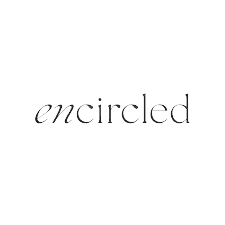
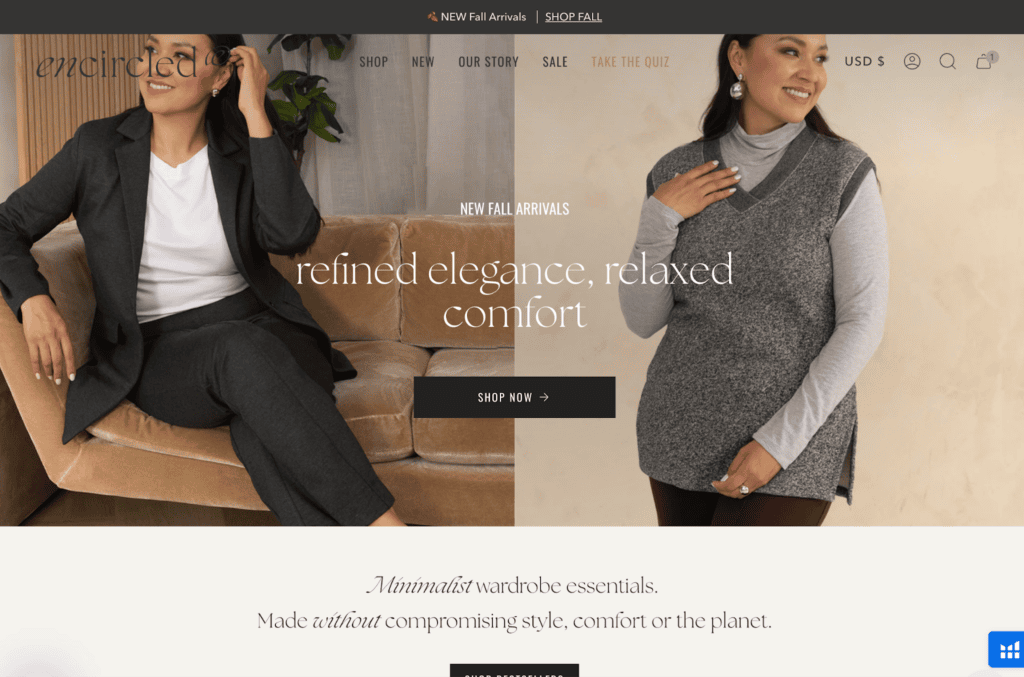
“Ethically made from the finest, most soft and flattering eco-friendly fabrics, our collection is designed with intention, flexibility and exceptional fit at its heart.”
Kristi Soomer, Founder of Encircled
🌎
How do they ensure their sustainability?
Encircled prioritizes sustainability through minimizing waste and maximizing options. On top of that, they are vigilant about closing gaps in the supply chains and the life of each piece of clothing.
- Their sewing studios upcycle all scrap fabrics into accessories, putting them up for quarterly sales. On their Encircled Renewed Threads platform, you can find pre-loved items for sale. It is also possible to buy, sell, or trade Encircled clothes on their Facebook community page. Other environmental incentives include using green energy to power their office and host their website, FSC-certified and eco-friendly paper and cleaning products, and 100% recyclable packaging.
- Encircled also manufactures their products locally and spends at least 50% of their non-labor expenses at local independent suppliers to reduce their carbon footprint.
- Lastly, they prioritize natural fabrics, such as organic cotton and linen, and low-impact, plant-based semi-natural fabrics, such as TENCEL™ Lyocell, TENCEL™ Modal, and LENZING™ ECOVERO™.
🌐
How do they ensure their ethics?
Encircled puts ethics at the core of their operations.
- Their final stage of production is undertaken in Canada, a low-risk country for labor abuse. They uphold each factory in their supply chain to an Ethical Code of Conduct checklist, exceeding what the law requires.
- Encircled also visits their international suppliers regularly.
- Lastly, they advocate continuously for diversity and inclusion.
🤝
Are they part of any giving-back programs?
Encircled is not known to be part of any giving-back programs.
🛍️
What is their product range?
- Best for: womenswear
- Product range: skirts, dresses, pants, jackets, blazers, knitwear, tops, blouses, T-shirts, stockings, tights, jumpsuits, playsuits, accessories, plus-size
- Price range: $$$
- Size range: XS–XXL
Boody: Fit-For-All Everyday Essentials Made With Eco-Friendly Materials

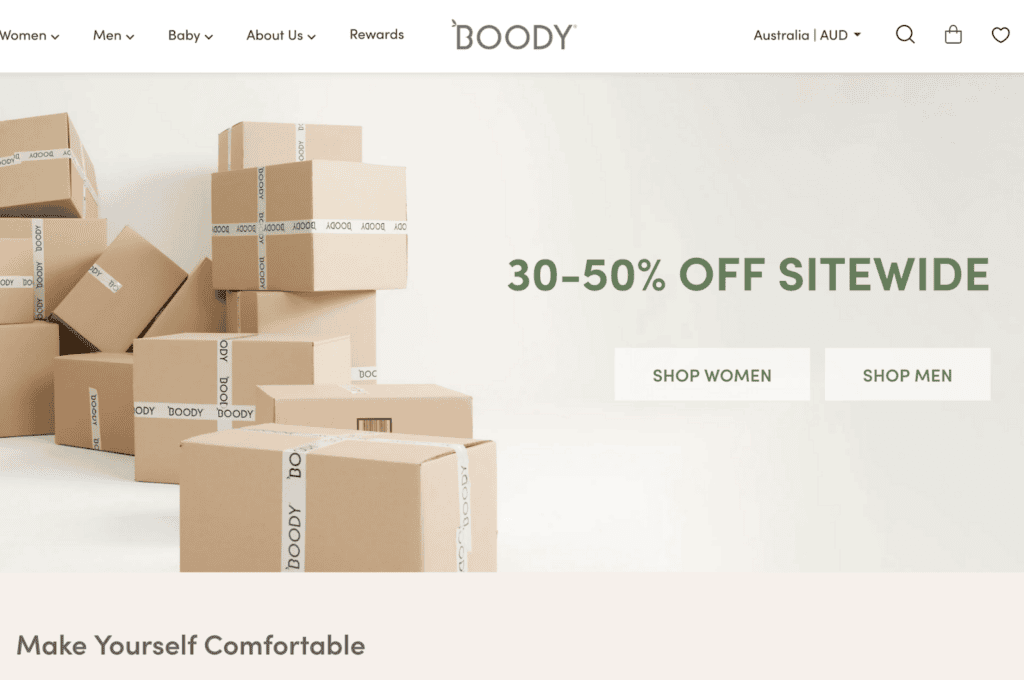
“Boody emphasises quality and simplicity. We bypass trends and fads as we believe they lead to overconsumption and waste.”
Boody
🌎
How do they ensure their sustainability?
Boody ensures sustainability by sourcing organic bamboo and organic cotton for their fabrics, reducing manufacturing waste, recycling all water used in production, and using recycled packaging.
- By sourcing plant materials from organic farms, Boody helps to keep out synthetic pesticides and fertilizers.
- Furthermore, their bamboo lyocell, LYOLYTE™, and bamboo viscose are manufactured in closed-loop systems where liquids and solvents are recycled, reused, or safely removed. Their cotton fibers are organically grown and certified by the Global Organic Textile Standard. Boody also has a zero-waste design, which enables knitting garments in tubes, leaving behind very little fabric wastage.
- Lastly, Boody encourages recycling of their ready-to-retire apparel by partnering with UPPAREL to launch The Goodness Loop. This platform enables consumers to buy a return shipping label, which starts the recycling process, and get a gift voucher to redeem on Boody’s new products.
🌐
How do they ensure their ethics?
Boody enforces fair labor practices by upholding suppliers to their Code of Conduct, which covers four of the ILO’s Fundamental Principles and Rights at Work. They also trace most of their supply chain. Lastly, the suppliers in their final production stage are certified by the Worldwide Responsible Accredited Production (WRAP).
🤝
Are they part of any giving-back programs?
As a 1% for the Planet member, Boody donates 1% of all their online sales to non-profits who help protect the environment. Additionally, they give 10% of all online beanie sales to the Chris O’Brien Lifehouse, a not-for-profit hospital and research institute dedicated to transforming cancer care. They also work with Thread Together to provide new clothing to less privileged Australians.
🛍️
What is their product range?
- Best for: kidswear, menswear, womenswear
- Product range: underwear, activewear, maternitywear, socks, stockings, tights, shorts, plus size
- Price range: $$
- Size range: XXS–XXL
Blue Canoe: US-Manufactured Clothes Using Fabrics Derived From Organically-Farmed Plants

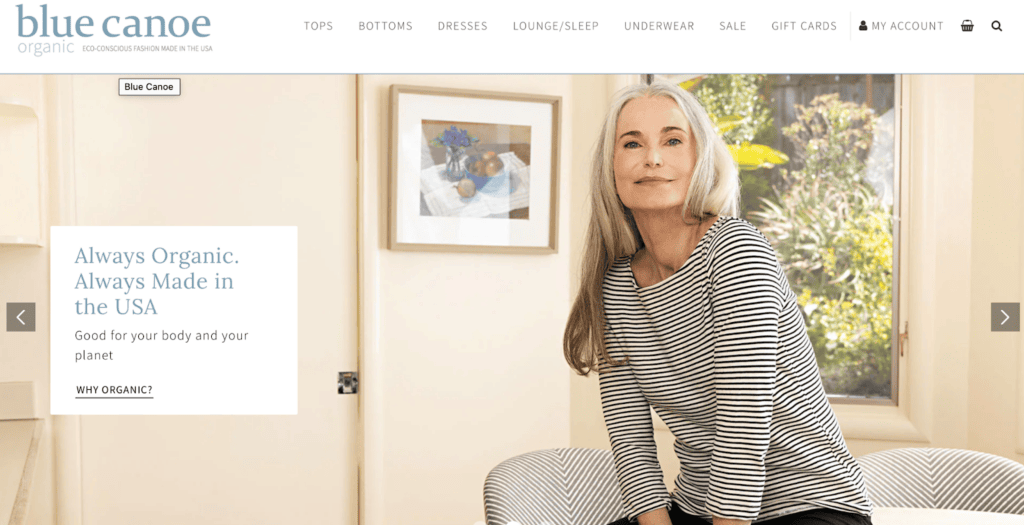
“We remain committed to using the finest fabrics, manufacturing from start to finish in the USA, and designing for the real world with simple lines, sensuous fabrics and sophisticated styles that are never fussy.”
Blue Canoe
🌎
How do they ensure their sustainability?
Blue Canoe ensures sustainability by sourcing exclusively organic fabrics made with plant fibers, predominantly organic cotton and organic bamboo, for their fabrics.
- They don’t use polyester or nylon, the polluting synthetic fabrics derived from nonrenewable resources. Further down the life-cycle in the manufacturing stage, Blue Canoe opts for using only US-based fabric mills that follow GOTS-certified standards in textile processing methods.
- Additionally, the fiber-reactive dyes they use for their garments require less water, create less waste, and are generally safer for people.
- Lastly, as they manufacture from start to finish locally in the US, they reduce their transporting carbon footprint.
🌐
How do they ensure their ethics?
Blue Canoe makes their clothes in the US, a medium-risk country for labor abuse. They maintain a simple supply chain to better control working conditions and product quality.
🤝
Are they part of any giving-back programs?
Blue Canoe is not known to be part of any giving-back programs.
🛍️
What is their product range?
- Best for: womenswear
- Product range: tops, bottoms, dresses, loungewear, sleepwear, underwear
- Price range: $$
- Size range: S–XL
Terrera: Thoughtful, Timeless, and Comfortable Clothing Made Sustainably

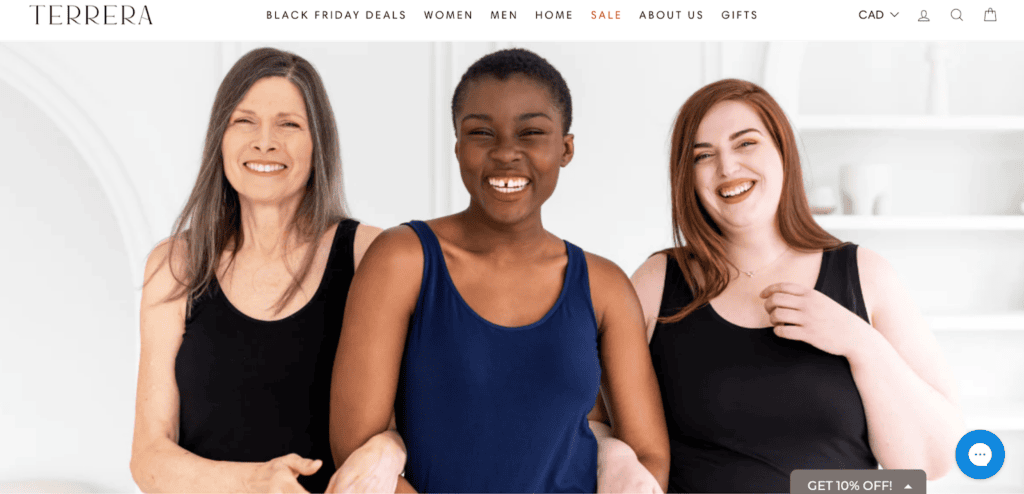
“Our women-led team designs bi-annual collections of easy-to-wear clothing using fine quality natural fibres including bamboo, organic cotton, and Tencel.”
Terrera
🌎
How do they ensure their sustainability?
Terrera prioritizes sustainability by opting for eco-friendly natural fibers, low-impact manufacturing, and less carbon-intensive ocean transportation.
- They use certified organic bamboo and/or organic cotton in their fabrics. All of their clothing and home products, from fabrics to buttons, are also free of harmful substances and have the OEKO-TEX® STANDARD 100 certification. Particularly, their viscose fabrics are made with bamboo grown without chemical fertilizers, herbicides, or pesticides in a ‘closed-loop’ process that recycles water and recaptures the chemicals.
- Additionally, Terrera uses non-toxic and hypoallergenic dyes certified by OEKO-TEX® Standard 100 to sustainably color their fabrics. Once the clothing pieces are finished at Terrera’s Chinese suppliers, they are transported to Canada by ocean cargo ships, which have a much lower ecological footprint than airplanes.
🌐
How do they ensure their ethics?
Terrera is a part of Fashion Revolution, a global movement uniting people and organizations to work together toward radically changing the way our clothes are sourced, produced, and consumed so that their clothing items are made in a safe, clean, and fair way. Their suppliers are based in China and are audited annually by a third party to ensure that they exceed national standards for health and safety, workplace conditions, and workers’ protection.
🤝
Are they part of any giving-back programs?
Every November, Terrera hosts their Save Big, Give Back event, where they commit to donating 10% of all online sales to a selected charity. For example, in 2023, they supported the Dress for Success Canada Foundation, an organization that honors the courage of women to overcome immense obstacles to keep moving forward. Other organizations and charities Terrara supports include YWCA, Sanctuary Toronto, Urban Promise, Amazon Rainforest Conservancy, and Toronto City Mission. During the pandemic, they donated thousands of medical masks and gowns to Markham Stouffville Hospital, St. Michael’s Hospital, St. Joseph’s Health Centre, and long-term care facilities in the GTA, as well as reusable fabric masks to local charitable organizations.
🛍️
What is their product range?
- Best for: womenswear, menswear
- Product range: tops, tunics, sweaters, cardigans, dresses, jumpsuits, leggings, bottoms, sleepwear, socks, underwear, accessories
- Size range: XS–XXL
HARA the Label: Bamboo Underwear and Loungewear Designed Collectively for You and Our Earth

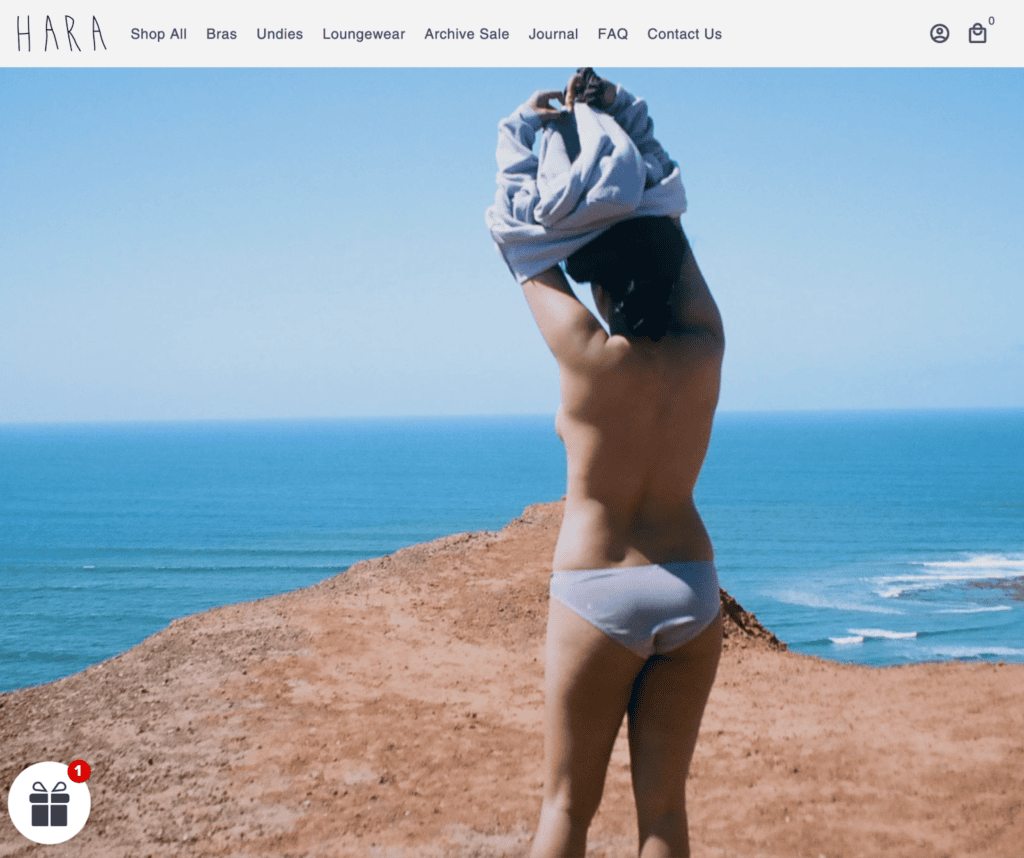
“We stand for slow fashion, transparent supply chains and an ethical production line you can be proud to support.”
HARA the Label
🌎
How do they ensure their sustainability?
HARA the Label promotes sustainability by using mostly low-impact organic bamboo lyocell fabrics for garments.
- They source only bamboo grown without synthetic pesticides, insecticides, and fertilizers from suppliers with an OEKO-TEX® STANDARD 100 certification. Further down the life-cycle in the manufacturing stage, their bamboo lyocell fabrics are produced in a closed-loop system that filters and reuses all the water and solvent.
- Additionally, all their clothing items are colored with low-impact, non-toxic dyes. Specifically, they use natural dyes derived from plants like turmeric, indigo, and madder root, as well as GOTS-certified fiber-reactive dyes, which require relatively low water.
- Lastly, HARA the Label produces clothes locally in Australia to reduce transport carbon footprint.
🌐
How do they ensure their ethics?
HARA the Label traces most of their supply chain, including the final stage of production in Australia.
🤝
Are they part of any giving-back programs?
HARA the Label is not known to be part of any giving-back programs.
🛍️
What is their product range?
- Best for: womenswear
- Product range: underwear, bras, loungewear, plus size
- Price range: $$$
- Size range: XS–5XL
Movesgood: Ethical Basic Wear and Bedding Made With Organic Bamboo Lyocell

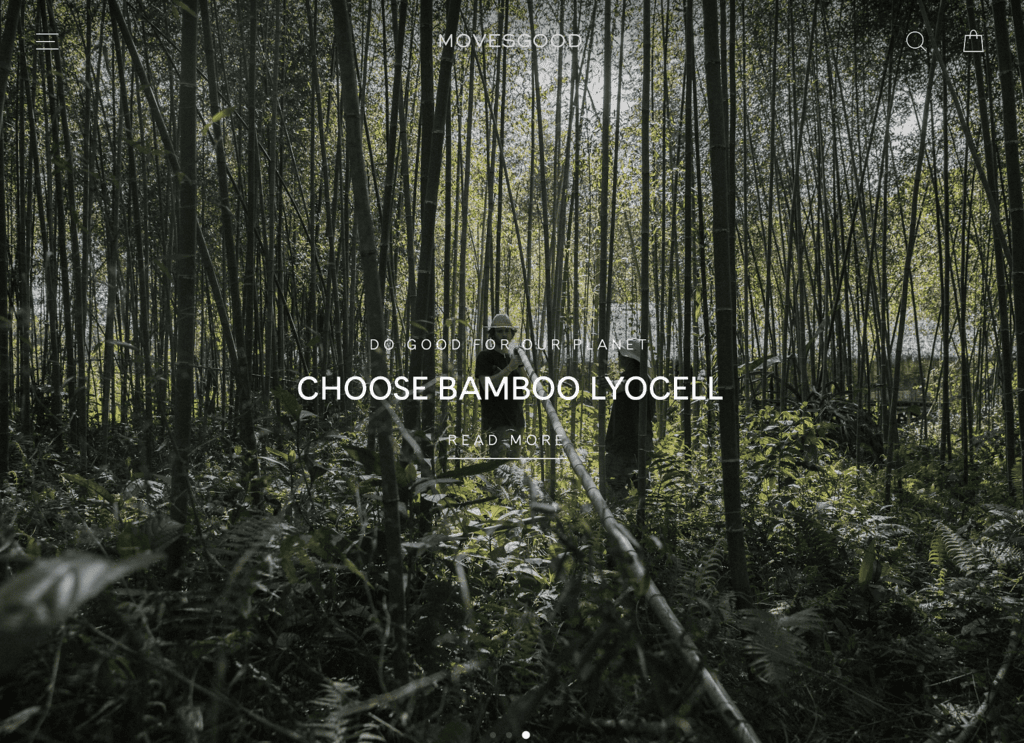
“One of our commitments, which lies at the core of our business and our garments, is to not use any cotton or synthetic fibres. Instead, we use natural lyocell processed bamboo – one of the most eco-friendly fabrics on the planet.”
Movesgood
🌎
How do they ensure their sustainability?
Movesgood ensures sustainability by reducing the adverse environmental impact that occurs throughout the clothes’ life-cycle, from material sourcing to production, transport, consumer use, and end of life.
- They start by sourcing a very high proportion of low-impact materials from nature, including bamboo, linen, and recycled cashmere. To maintain the quality and stretch of fabrics, Movesgood uses a small percentage of recycled spandex (elastane) certified by the Recycled Claim Standard. Further down the life-cycle in the manufacturing stage, Movesgood’s bamboo lyocell blends are all made in a closed-loop system that uses only one completely recyclable chemical.
- Additionally, they use only a few selected materials they buy in large volumes to reduce the frequency of transportation, relying solely on trains and boats to minimize their carbon footprint. To reduce waste, they run production by demand.
- Lastly, Movesgood uses pop-up stores built with recycled construction waste and decorated with living plants.
🌐
How do they ensure their ethics?
Movesgood is transparent about their factories, which are based in China and Turkey. Their suppliers are certified with BSCI, SMETA, WRAP, GOTS, and OEKO-TEX® Standard 100.
🤝
Are they part of any giving-back programs?
Movesgood is not known to be part of any giving-back programs.
🛍️
What is their product range?
- Best for: womenswear, menswear
- Product range: tops, cardigans, sweaters, hoodies, shirts, pants, dresses, underwear, scarves, accessories
- Price range: $$$
- Size range: XS–XL
ettitude: Climate-Neutral Bamboo Clothing and Bedding Items


“We need to give back to the earth. That’s why we use natural resources, like bamboo, that can be regenerated and support the health of our planet. ”
ettitude
🌎
How do they ensure their sustainability?
ettitude promotes sustainability by innovating bamboo lyocell fabrics, reducing water and chemical usage, minimizing textile waste, and achieving climate neutrality with emission reduction and offset.
- Their patented and carbon-neutral CleanBambooTM is sourced from FSC-certified sustainable forests and is made in a non-toxic, closed-loop system that recycles 98% of the solution up to 200 times.
- Additionally, ettitude partners with UPPAREL to run a textile recycling program, Loop, recycling unwanted bedding, towels, and clothing. Since 2021, ettitude has measured, reduced, and offset all the carbon emissions associated with every product. Their 2021 offsetting project planted 5.5 hectares of bamboo in Nicaragua through CarbonFund.
- Lastly, they are climate-neutral certified.
🌐
How do they ensure their ethics?
ettitude traces most of their supply chain. They uphold their suppliers to a Code of Conduct that covers all of the ILO’s Fundamental Principles and Rights at Work. Additionally, all of their cut-and-sew factories are audited by SMETA and BSCI for ethical standards.
🤝
Are they part of any giving-back programs?
ettitude partners with charity: water to fund clean water projects in Nepal with part of their sales. In 2021, they contributed 19.8% of their sales to support environmental causes via their 1% for the Planet partnership. In the same year, they also donated to local homeless and animal shelters.
🛍️
What is their product range?
- Best for: menswear, womenswear
- Product range: PJs, jumpsuits, robes
- Price range: $$
- Size range: S–XL
Psylo: Alternative Clothing Ethically Handcrafted
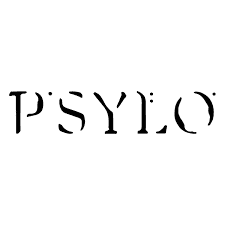
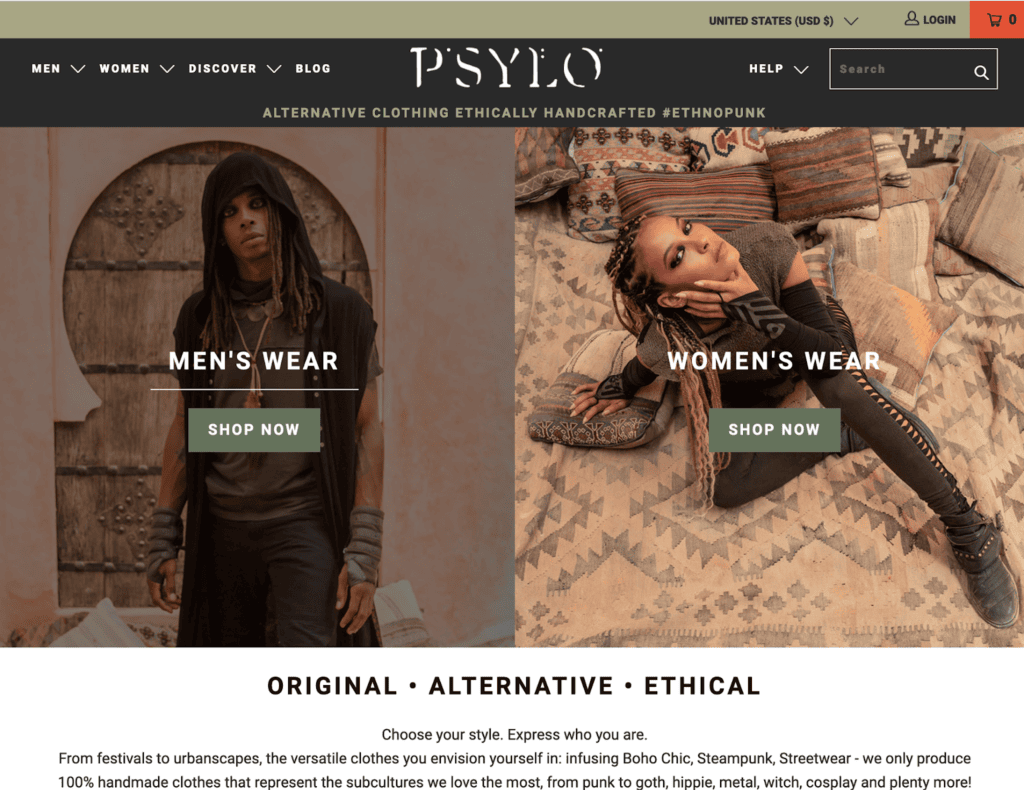
“As conscious people striving for a life of awareness, we try to take the utmost care of the environment and all life around us”
Psylo
🌎
How do they ensure their sustainability?
Psylo ensures sustainability by prioritizing natural fibers, upcycling fabric waste, and using biodegradable packaging.
- They use a medium proportion of lower-impact materials such as GOTS-certified organic cotton or bamboo.
- For the colors of their clothing items, they use water-based dyes, which pass through filtering systems before going into the sewage system, decreasing the adverse environmental impact.
- Lastly, Psylo uses their textile scraps in their “Pecoa” style—a patchwork design created from leftover pieces of fabric.
🌐
How do they ensure their ethics?
Psylo traces most of their supplier chain and visits their suppliers regularly. All employees are legal adults and receive overtime pay for hours worked over 40 in a workweek.
🤝
Are they part of any giving-back programs?
Psylo is not known to be part of any giving-back programs.
🛍️
What is their product range?
- Best for: menswear, womenswear
- Product range: sweaters, hats, dresses, jackets, blazers, tops, blouses, shorts, accessories
- Price range: $$
- Size range: S–XXL
CARIUMA: Sneakers Designed for Style, Comfort, and Sustainability
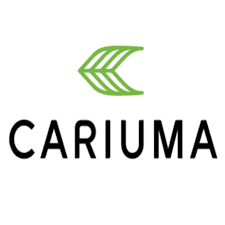

“We iterate a sneaker style for a year + before we bring it to production and we attempt to reduce the number of steps it takes to manufacture (which saves energy and time).”
CARIUMA
🌎
How do they ensure their sustainability?
CARIUMA prioritizes sustainability by increasing the natural content of their products.
- In particular, they prioritize materials that renew quickly, like bamboo and sugarcane, and plant-derived substances, such as cork and rubber, that can be harvested without cutting down trees. CARIUMA also sources lower-impact alternatives to conventional sneaker materials, for example, organic cotton instead of cotton, mamona oil instead of petroleum, recycled nylon instead of virgin nylon, and rPET (recycled PET—polyethylene terephthalate—plastic) instead of virgin plastics.
- The leather used in CARIUMA sneakers is sourced, tanned, and finished with low-waste methods, renewable and recycled inputs, and fewer chemicals. Their responsible practices involve recycled water, renewable energy, and a closed-loop tanning chemical system to protect the surrounding land and groundwater. CARIUMA exclusively sources leather as a byproduct of best-practice food industry cattle, which are steroid-free and grass-fed on naturally treeless plains indigenous to South America.
- Furthermore, they reduce their carbon footprint via a series of initiatives, including using solar energy, LED lighting, and a cooling tower in their warehouse, delivering sneakers in one recycled and recyclable paper box (which acts as both packaging and a shoe box), and opting for a carbon-neutral shipping option.
🌐
How do they ensure their ethics?
CARIUMA binds their suppliers to a Code of Conduct that covers all of the ILO’s Fundamental Principles and Rights at Work.
- They also trace most of their supply, specifically 100% of Tier 1 suppliers—the footwear manufacturer; 85% of Tier 2 suppliers involving raw material processors, mills, knitting, packaging, outsole factory, and components in general; and 59% of their Tier 3 suppliers who provide yarns, polymers, and chips.
- Additionally, their manufacturing partner is audited annually by WRAP. They also visit their suppliers routinely. Regarding the use of animal skins in their leather sneakers, CARIUMA has an Animal Welfare Policy, ensuring animal welfare standards and transparency in the leather supply chain.
- Lastly, their leather suppliers are certified and audited by the Leather Working Group (LWG).
🤝
Are they part of any giving-back programs?
Since June 2020, CARIUMA has committed to planting two trees for every pair of sneakers they sell. Their reforestation program started in Brazil, with over 2 million trees planted. They work closely with the local indigenous communities, following their guidance on how to tend to the land and best support regrowth and restoration, improve seed storage efficiency, and go about replanting methods that mitigate risk and preserve biodiversity.
🛍️
What is their product range?
- Best for: womenswear, menswear
- Product range: sneakers
- Price range: $$
- Size range: XS–XL
Bamboo Fabrics: Breathable and Biodegradable Materials From Regenerative Plants
Bamboo fabrics are semi-natural/semi-synthetic fabrics made with cellulose fibers from fast-growing plant species with high carbon sequestration potentials. Bamboo lyocell fabrics are made in a closed-loop process where almost all chemicals are recovered and reused.
Here are the life-cycle stages of bamboo fabrics and each stage’s sustainability assessment:
- Sourcing plant materials for bamboo fabrics: The sourcing stage is generally sustainable because bamboo fiber is a renewable material. Bamboo plants grow and regrow rapidly without needing fertilizer or irrigation like some other fiber crops. However, there are concerns over some unnecessarily unsustainable bamboo cultivation practices and its supply chain transparency.
- Manufacturing of bamboo fabrics: The sustainability of bamboo manufacturing depends on the fabric type and can be energy, chemical, and labor-intensive. High usage of fossil-based energy and chemicals could have serious knock-on ecological impacts. At the same time, dependency on heavy labor comes with a high price tag and/or worker treatment concerns. Mainly, not all bamboo fabrics are made equally sustainable, so it is important that you, as a consumer, know the differences.
- Transportation of bamboo fabrics: Transporting can be a carbon-intensive stage in the life-cycle of items made with bamboo fabrics because of the emissions associated with transporting and delivering vehicles. Bamboo fabrics typically travel from forests and plantations, where raw materials for bamboo fabrics are grown, to processing factories and then to sorting centers, shops, and consumers’ homes before going to recycling centers or landfills.
- Usage of bamboo fabrics: The usage of bamboo fabrics is relatively sustainable because these breathable fabrics require relatively fewer washes. Also, modal, lyocell, and linen are all durable fabrics.
- End-of-life of bamboo fabrics: The end-of-life stage for bamboo fabrics is generally sustainable because it is reusable, biodegradable, and compostable.
Bamboo fabrics are largely sustainable because they are derived from fast-growing, adaptive plants. They are breathable, durable, and biodegradable—three tell-tale signs of textile sustainability.
Why Is It Important to Buy Products Made of More Sustainable Fabrics
It is important to buy products made from more sustainable fabrics because a sustainable textile industry has a lower carbon footprint, helps save natural resources, and is better for forests, animals, and humans alike.
Buying Sustainable Fabrics Reduces Your Carbon Footprint
The production of clothing and footwear is estimated to contribute 10% of global greenhouse gas emissions—more than all international flights and shipping combined. If the fashion industry were a country, it would be the fourth largest emitter of carbon dioxide.
One way to reduce the carbon footprint of the clothes you buy is to opt for sustainable fabrics. Sustainable fabrics, which are often made with natural or recycled fibers, have relatively low carbon footprints compared to petroleum-based fabrics. For example, organic cotton made in the US has a carbon footprint of 2.35 kg CO2 (per ton of spun fiber)—a quarter of polyester’s carbon footprint.
Buying Sustainable Fabrics Reduces Demand for Natural Resources and Waste Management
The textile industry uses water and land to grow cotton and other fibers. It is estimated that 79 billion cubic meters of water were used for the sector worldwide in 2015. For example, producing a single cotton T-shirt requires as much water as one person drinks for 2.5 years (2,700 liters of fresh water).
Worse yet, the textile economy is vastly more linear than circular: the largest amount of resources used in clothes ended up in landfills (instead of being recycled to remake clothes). According to a report by the Ellen MacArthur Foundation,
- Less than 3% of materials used in the textile economy in 2015 came from recycled sources.
- In other words, more than 97% of resources used in making clothes are newly extracted.
When clothing items are disposed of within a short period of time—under a year in the case of half of the fast fashion clothes—the natural systems that provide raw materials for fabrics don’t have enough time to recover and regenerate, which could lead to ecological breakdown.
Sustainable fabrics are made with less water and emissions while lasting longer:
- Because they are durable, you don’t need to buy new clothes too often.
- Thus, you help reduce the pressure to extract more resources for making new items.
Similarly, making and consuming sustainable fabrics made with recycled materials reduces the demand for virgin materials while helping tackle waste management.
Buying Sustainable Fabrics Encourages Sustainable Management of Forests
Sustainable plant-based fabrics are made with raw materials from forests and plantations that are sustainably managed, such as complying with FSC standards.
When you buy sustainable plant-based fabrics, you discourage unsustainable forestry practices like illegal logging. You can help reduce deforestation, biodiversity loss, and the effects of climate change.
Buying Sustainable Fabrics Encourages Fairer Treatment of Animals
The fashion industry is rife with animal mistreatment when it comes to making animal-based fabrics like wool or silk. Every year, billions of animals suffer and die for clothing and accessories.
Buying sustainable vegan alternatives can help to reduce the pressure on raising more and more animals to meet the demand for animal-based fabrics while sacrificing their well-being and lives.
Suppose you have to buy fabrics made with, for example, wool or silk; make sure you only choose brands committed to cruelty-free products. In that case, you help advocate better treatments for animals raised within the textile industry.
Using Sustainable Fabrics Encourages Fairer Treatment of Textile Workers
Recent statistics from UNICEF estimated as many as 170 million child laborers worldwide, many of whom were engaged in some form of work in the textile industry. They don’t get paid minimum wages and often work long hours.
When you buy sustainable fabrics from brands transparent about the working conditions at their factories, you discourage the use of child labor and help promote better working conditions for textile workers.
How Can You Generally Buy More Sustainable Fabrics
The key to sustainably buying fabrics is to check on relevant environmental and original certifications.
For natural fabrics:
- Global Organic Textile Standard (GOTS): A globally recognized certification system that ensures a certain threshold of organic content has been met. It covers manufacturing, packaging, labeling, transportation, and distribution (but not what happens in the fields where crops are grown).
- USDA Certified Biobased Product: The USDA BioPreferred® Certification is a voluntary certification offered by the United States Department of Agriculture. The certification identifies products made from plants or other renewable materials.
- Ecolabel: Ecolabel is the official European Union voluntary label recognized worldwide for certified products with a guaranteed, independently verified low environmental impact. The label requires high environmental standards throughout the entire life-cycle: from raw material extraction through production and distribution to disposal. It also encourages companies to develop innovative, durable, easy-to-repair, and recyclable products.
For plant-based semi-natural/semi-synthetic fabrics:
- Forest Stewardship Council: An FSC certification ensures that the wood (or wood-like material) comes from responsibly managed forests that provide environmental, social, and economic benefits.
There are two types of FSC Certification:- FSC Forest Management Certification, with a focus on the origin of the wood—the forest.
- FSC Chain of Custody Certification, which focuses on the path from the forest to the customer’s home.
- Program for Endorsement of Forest Certification: PEFC’s approaches to sustainable forest management are in line with protecting the forests globally and locally and making the certificate work for everyone. Getting a PEFC certification is strict enough to ensure the sustainable management of a forest is socially just, ecologically sound, and economically viable but attainable not only by big but small forest owners.
For recycled fabrics:
- Recycled Claim Standard (RCS): The Textile Exchange RCS was originally developed as an international, voluntary standard that sets requirements for third-party certification of Recycled input and chain of custody.
- The Global Recycled Standard (GRS): The Global Recycled Standard (GRS) is an international, voluntary, full product standard that sets requirements for third-party certification of Recycled Content, chain of custody, social and environmental practices, and chemical restrictions. It can be used for any product with more than 20% recycled material.
For all types of fabrics:
- STeP by OEKO-TEX®: STeP by OEKO-TEX® is an independent certification system for brands, retailers, and manufacturers from the textile and leather industry. It communicates organizational environmental measures, including reducing carbon footprint and water usage.
- OEKO-TEX® Standard 100: OEKO-TEX® labels aim to ensure that products pose no risk to human health (i.e. containing banned chemicals).
Some certifications that are signaling brands’ efforts toward lowered environmental impacts and a circular economy are:
- B Corp Certification: The label B Corp is a certification reserved for for-profit companies. Certified holders are assessed on their social and environmental impacts.
- Cradle2Cradle certification: Cradle2Cradle provides a standardized approach to material circularity. It assesses whether products have been suitably designed and made with the circular economy in mind covering five critical categories: material health, material reuse, renewable energy and carbon management, water stewardship, and social fairness.
Final Thoughts
Bamboo fabrics are generally considered sustainable plant-derived textile materials because of their renewability, durability, breathability, and biodegradability. Bamboo lyocell is an especially eco-friendly fabric produced in a closed loop where more than 99% of chemicals are reused.
By purchasing new or pre-loved bamboo clothes from brands that commit to sustainability, you support their mission to create a fairer and less harmful textile industry for all lives on Earth.
Here is the list (again) of the most sustainable bamboo clothing brands:
- Encircled
- Boody
- Blue Canoe
- Terrera
- Hara The Label
- MOVESGOOD
- etittude
- Psylo
- CARIUMA
To make your use of these fabrics even more sustainable, follow these steps:
- Buy second-hand, recycled, or upcycled clothes made with bamboo clothes.
- While using bamboo clothes, maximize the number of wears between washes and keep them as long as possible.
- At the end-of-life of your bamboo clothes, upcycle the materials to extend their usage and arrange for them to be recycled or properly disposed of.
Stay impactful,

Sources
- Impactful Ninja: How Sustainable Are Bamboo Fabrics? A Life-Cycle Analysis
- Britannica: Bamboo | Plant
- Science Direct: Life-cycle assessment (LCA)
- Impactful Ninja: How Sustainable Are Bamboo Lyocell Fabrics? A Life-Cycle Analysis
- Impactful Ninja: How Sustainable Are Bamboo Viscose Fabrics? A Life-Cycle Analysis
- Impactful Ninja: How Sustainable Are Bamboo Modal Fabrics? A Life-Cycle Analysis
- Encircled: Home
- Boody: Home
- Blue Canoe: Home
- Terrera: Home
- HARA the Label: Home
- Movesgood: Home
- ettitude: Home
- Psylo: Home
- CARIUMA: Home
- Impactful Ninja: How Sustainable Are Natural Fabrics Fabrics? A Life-Cycle Analysis
- Impactful Ninja: How Sustainable Are Recycled Cotton Fabrics? A Life-Cycle Analysis
- Impactful Ninja: How Sustainable Are Organic Cotton Fabrics? A Life-Cycle Analysis
- Global Organic Textile Standard: Home
- Textile Exchange: Organic Content Standard
- OEKO-TEX: Standard 100 by OEKO-TEX®
- Impactful Ninja: How Sustainable Are Hemp Fabrics? A Life-Cycle Analysis
- Impactful Ninja: How Sustainable Are Recycled Polyester Fabrics? A Life-Cycle Analysis
- Route: TAKE THE GREENER ROUTE
- One Tree Planted: Home
- B Corporation: Encircled
- Encircled: Our Promise
- Encircled: Encircled Renewed Threads
- Good On You: Brand Directory | Encircled
- Encircled: Where It’s Made
- Impactful Ninja: How Sustainable Are Linen Fabrics? A Life-Cycle Analysis
- Impactful Ninja: How Sustainable Are Semi-Natural/ Semi-Synthetic Fabrics Fabrics? A Life-Cycle Analysis
- TENCEL: TENCELTM Lyocell
- TENCEL: TENCEL™ Modal
- Impactful Ninja: How Sustainable Are Rayon Fabrics? A Life-Cycle Analysis
- Encircled: Encircled Supplier Ethical Practices
- Our Forest: Can you shop at Encircles sustainably
- B Corporation: Boody
- Boody: About Boody
- Good On You: Brand Directory | Boody
- Boody: LYOLYTE™ Lyocell Underwear
- Boody: Our Process
- Impactful Ninja: How Sustainable Are Cotton Fabrics? A Life-Cycle Analysis
- Boody: The Goodness Loop
- Boody: Code of Conduct
- International Labour Organization: Fundamental Principles and Rights at Work
- Worldwide Responsible Accredited Production (WRAP): Home
- One Percent For The Planet: Home
- Boody: Soft Jersey Beanie
- Chris O’Brien Lifehouse: Home
- Thread Together: Home
- UPPAREL – Home
- Blue Canoe: The Story Behind Blue Canoe
- Impactful Ninja: How Sustainable Are Polyester Fabrics? A Life-Cycle Analysis
- Impactful Ninja: How Sustainable Are Nylon Fabrics? A Life-Cycle Analysis
- Impactful Ninja: How Sustainable Are Synthetic Fabrics? A Life-Cycle Analysis
- Blue Canoe: COLLECTION
- Terrera: About Us
- Terrera: Our Fabrics
- Impactful Ninja: How Sustainable Are Viscose Fabrics? A Life-Cycle Analysis
- Terrera: Who Made Your Clothes
- Fashion Revolution: Home
- Terrera: November Charity | Save Big, Give Back
- Dress For Success Canada Foundation: Home
- Amazon Rainforest Conservancy: Home
- HARA The Label: Bamboo Fabric
- Good On You: Brand Directory | HARA the Label
- HARA the Label: Natural dyes
- Movesgood: WHY MOVESGOOD
- Impactful Ninja: How Sustainable Are Cashmere Fabrics? A Life-Cycle Analysis
- Impactful Ninja: How Sustainable Are Spandex Fabrics ? A Life-Cycle Analysis
- Impactful Ninja: How Sustainable Are Elastane Fabrics ? A Life-Cycle Analysis
- Textile Exchange: The RCS and GRS are designed to boost the use of recycled materials
- Movesgood: Lyocell – Bamboo
- AMFORI: BSCI
- Sedex Members Ethical Trade Audit: Home
- B Corporation: ettitude
- Good On You: Brand Directory | ettitude:
- ettitude: Introduce Loop.
- ettitude: About
- ettitude: Sustainability
- ettitude: Impact Report 2021
- CarbonFund: Home
- charity: water
- Psylo: Sustainability at Psylo Fashion
- Good On You: Brand Directory | Psylo
- Psylo: STREETWEAR SUSTAINABILITY: HOW WE DO COLOURS & DYES
- B Corporation: CARIUMA
- CARIUMA: EMPOWERING SUSTAINABLE CHOICES | Materials
- CARIUMA: EMPOWERING SUSTAINABLE CHOICES | Operations
- CARIUMA: EMPOWERING SUSTAINABLE CHOICES | Factories
- CARIUMA: Code of Conduct
- Good On You: Brand Directory | CARIUMA
- CARIUMA: REFORESTATION PROGRAM
- European Parliament: The impact of textile production and waste on the environment (infographic)
- Science Direct: The challenge of “Depeche Mode” in the fashion industry – Does the industry have the capacity to become sustainable through circular economic principles, a scoping review
- Science Direct: Carbon Footprint of Textile and Clothing Products
- European Parliament: Environmental impact of the textile and clothing industry
- European Parliament: What if fashion were good for the planet?
- Ellen MacArthur Foundation: A New Textiles Economy: Redesigning fashion’s future
- McKinsey: Style that’s sustainable: A new fast-fashion formula
- Forest Stewardship Council: Home
- Our World in Data: Deforestation and Forest Loss
- Our World in Data: Renewable Energy
- Peta: Animals Used For Clothing
- The Guardian: Child labour in the fashion supply chain
- BioPreferred: WHAT IS THE BIOPREFERRED PROGRAM?
- European Commission: Environment | EU Ecolabel
- Forest Stewardship Council
- FSC Forest Management Certification
- FSC Chain of Custody Certification
- Program for Endorsement of Forest Certification
- OEKO-TEX: Certification according to STeP by OEKO-TEX®
- B Corp Certification: Home
- C2CCertified: Home















